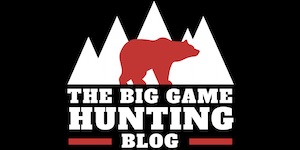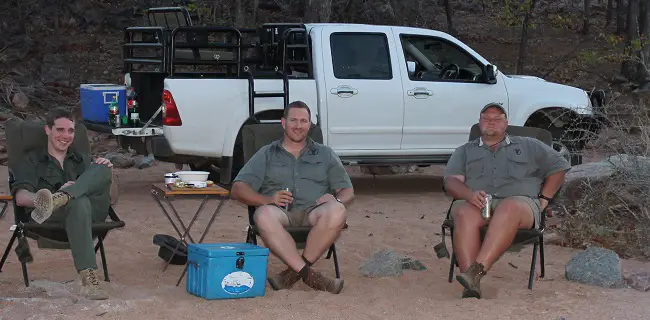Keep reading to learn some of my recommendations on how to be a good client on a guided hunt.
Hunting with an outfitter or guide can be a great way to have the hunt of a lifetime. However, paying a guide or an outfitter does not guarantee success on a hunt. There are a few things that you as the client should do that will both make your guide’s life easier and increase your odds of success. Read on to learn how to be a good client on a guided hunt.
Arrive In Good Shape
While some hunts are more physically demanding than others, physical fitness is still an essential part of how to be a good client on a guided hunt. Being able to actively partake on the hunt without undue difficulty will make it much easier on your guide. It will also make the hunt much more fun for you, since you’ll be able to enjoy the experience without gasping for air or being on the verge or collapsing from exhaustion.
You need to arrive in shape on day 1: the hunt is not the time to get in shape. Talk to your outfitter prior to the hunt and find out what sort of fitness level is best for the hunt. Some outfitters, especially those guiding extremely physically demanding hunts, will be happy to provide you a workout plan to properly prepare you. Regardless, show up in good physical condition and ready to go. You and your guide will both appreciate it on the hunt.
Be Familiar With Your Weapon Of Choice
There are few things that will drive a hunting guide crazy faster than a hunter who shows up and can’t shoot. On an deer, elk, or plains game hunt, that is a frustrating experience that can result in a missed shot or a wounded animal. On a dangerous game hunt, poor marksmanship can get someone killed. For this reason, many professional hunters, including Johan Seyffert of Big Game Hunting Adventures, rate marksmanship as the most important thing a person can to be a good client of a guided hunt.
Prior to your hunt, get in touch with your outfitter and find out the most common shooting distances that you’ll encounter on your hunt. Then, do a little research (or just ask your outfitter again), and pick out the best rifle and ammunition (or archery equipment) and properly zero them in accordance with the ranges that you are most likely to shoot at on your hunt.
Don’t use a rifle with a muzzle brake without clearing it with your guide first. While they are great at reducing felt recoil, they also significantly increase the amount of muzzle blast people standing off to the side (like your guide) have to endure. Especially when you consider that few guides wear hunting ear protection, and it should be obvious why many outfitters and guides have an aversion to clients using muzzle brakes.
Once that is complete, you need to practice. Get off the bench and practice shooting from field shooting positions. Then practice rapid follow up shots. Then practice rapid reloads. Remember: you are going to spend potentially thousands of dollars on a guided hunt and it all comes down to you properly delivering a bullet or an arrow when the time comes. A little bit of time and money spent at the range is a good investment for the actual hunt and will likely pay large dividends down the road.
Tip Well
Regardless of what you might think at first, especially considering how much some guided hunts cost, hunting guides are not wealthy individuals. Don’t get me wrong, there are some that do pretty well, but most of them don’t make that much money. This is especially true when you consider the hours that they have to put in, along with the fact that their work is primarily seasonal. Because of this, tips are very important to hunting guides.
That being said, you should realize that gratuity is always optional. You should also base your tip on the quality of service you received on the hunt, not necessarily the end result of the hunt. If your guide worked his or her tail off and really went above and beyond the call of duty on the hunt, yet you went home empty handed or with a smaller than desired trophy, that guide should still receive a good tip. By the same token, a guide who provided poor service, had a bad attitude, showed little initiative, etc., should receive little or no gratuity.
The exact amount to tip your hunting guide is always a tricky subject. Some outfitters will provide you with a recommended amount to tip. However, in the absence of this, I recommend that you tip your guide 5-10% of the total hunt cost depending on the level of service that you received. Additionally, don’t forget to tip any other camp staff that may also have been essential parts of the hunt, like a cook, skinner, packer, etc.
Bring A Good Attitude
Perhaps the most important aspect of how to be a good client on a guided hunt is to have a good attitude. Things occasionally go wrong on hunts, even when you are using the best guide or outfitter. Sometimes the weather is bad. Sometimes the animals just won’t seem to cooperate. Sometimes the craziest little thing that you wouldn’t think can possibly go wrong goes wrong.
When that happens, you’ve just got to roll with the punches. A good guide or outfitter will work very hard to make sure you have a successful hunt, but that doesn’t mean that they can work miracles. When things don’t go according to plan (and they often don’t), you’ve got to make sure that you still maintain a positive attitude.
Remember: you on a hunting trip because it is a fun activity and you enjoy it. Even a bad day hunting is better than a good day at the office, so make the most of it. Having a good attitude not only makes you more fun to be around, but it is also infectious. Additionally, a nice person with a good attitude is the type of person that most guides and camp staff will go the extra mile for to make sure that they have a special hunt.
It’s easy to forget that it is not as simple as just paying a lot of money to a guide or an outfitter in order to have a good hunt. You as the hunter have certain expectations that you need to live up to in order to give yourself the best odds of success. Following the advice presented in this article will go a long way towards setting you up for success though. However, nothing in life is guaranteed, which is why having a good attitude is so important. As long as you’ve got a good attitude, you will have very few bad hunts, regardless of what you end up shooting.
Were there any important tips on how to be a good client on a guided hunt that I missed?
Enjoy this article on how to how to be a good client on a guided hunt? Please share it with your friends on Facebook and Twitter.
Make sure you follow The Big Game Hunting Blog on Facebook, Instagram, Twitter, and YouTube.
NEXT: KOK & SEYFFERT BIG GAME HUNTING REVIEW
John McAdams is a proficient blogger, experienced shooter, and long time hunter who has pursued big game in 8 different countries on 3 separate continents. John graduated from the United States Military Academy at West Point and is a veteran of combat tours with the US Army in Iraq & Afghanistan. In addition to founding and writing for The Big Game Hunting Blog, John has written for outdoor publications like Bear Hunting Magazine, The Texas State Rifle Association newsletter, Texas Wildlife Magazine, & Wide Open Spaces. Learn more about John here, read some of John’s most popular articles, and be sure to subscribe to his show: the Big Game Hunting Podcast.



This is great information and pretty much spot on. I would add a couple of things that I see with my clients. Practice shooting off of sticks if you are going to have to use them. It looks easy, it is not. It takes practice. When a hunter goes on a guided hunt he should expect a good time and that is usually up to them, if they have done their homework. This is key. Know what you are getting into. Check references and ask lots of questions. I always tell hunters to ask for a reference from someone who DID NOT get a trophy. If we all judged our hunts by what we killed, none of us would hunt for long. The last thing is, if you are leaving the country, don’t be the ugly American. Enjoy the culture and the people and except their ways, that is a very big part of an exceptional experience. They will want you back and you will be planning your next visit before you leave. Have fun!
I have been on several hunts in my life,I went with a positive attitude for the hunt,not wanting a wall hanger but in return I got many. I always enjoy the country and it’s beauty.Things will happen that’s not expected to,take the good with the bad and enjoyed your time in nature,it has a lot to offer if you just breath in and look around, I’ve met people that all they wanted to do is kill the biggest and those people were the ones that didn’t enjoy there experience,always be kind and curtious to others,offer help,and just remember to have a good time.
Great tips! I don’t really offer guided hunts unless it’s absolutely necessary (wheelchair…child w/ disabled kids, etc.), but your in information was interesting to me. It all made sense, but I especially like the part about getting references from people who did not harvest a trophy.
These are really good tips on being a good customer for a guide while hunting. I guess a lot of us don’t see that it goes both ways and that they want to work with someone that is pleasant. Tips like being in good shape, and knowing your stuff sounds like it would be very helpful.